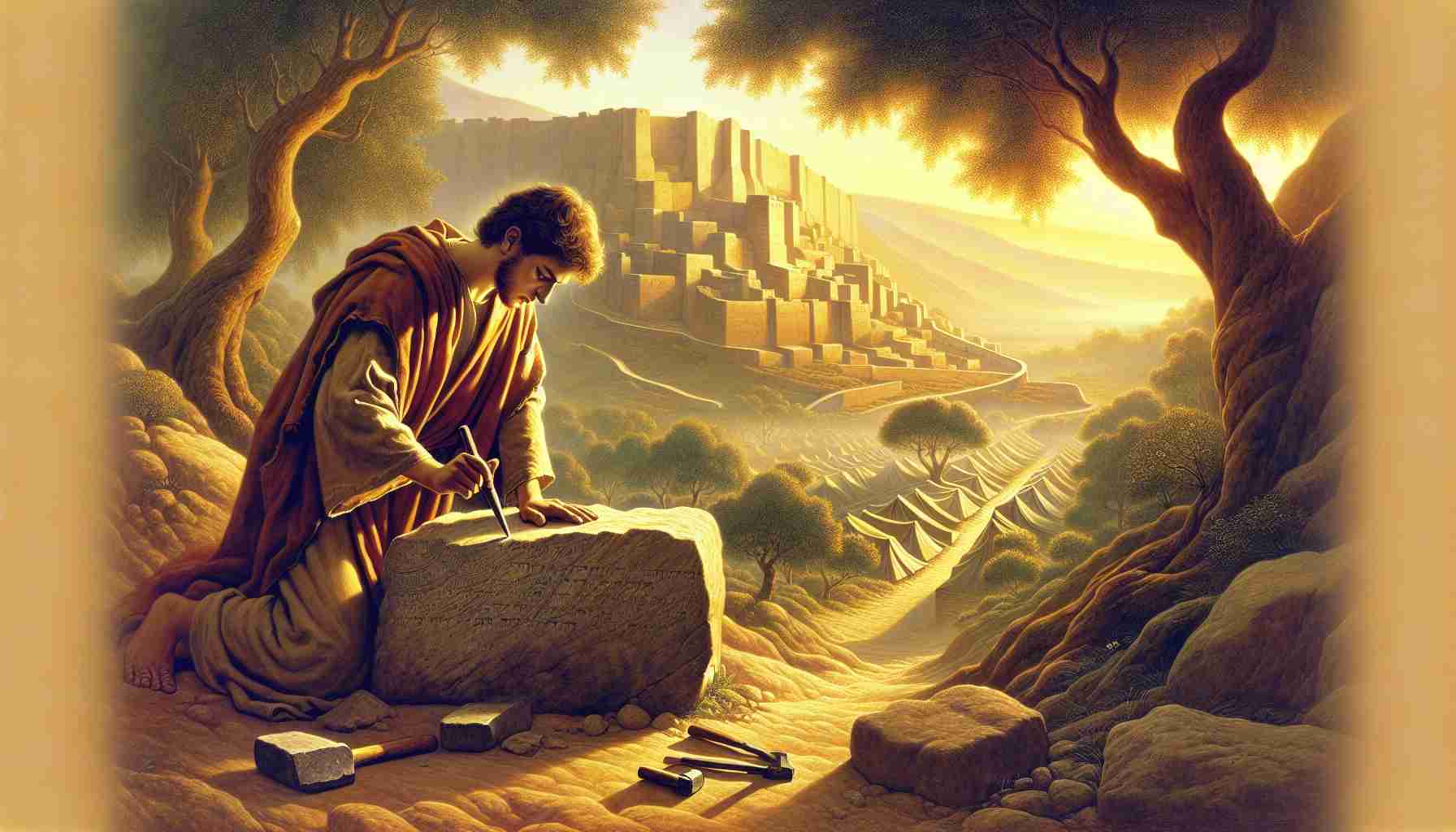

I was a farmer’s son, barely twenty, when everything changed with one deadly mistake.
We were nearing the end of the barley harvest, and tensions were high. My younger brother Eitan and I had been working in the sun since dawn. Our neighbor, Dov, helped sometimes, though he and Eitan often argued. That day, a dispute over boundary lines turned ugly. I tried to step between them, swinging my tool—just to push Dov away.
I didn’t mean it. I swear by Heaven, I didn’t mean it.
But Dov fell. He struck his head on a rock. And he didn’t get up.
The next moments were a blur—shouts, running feet, neighbors gathering. Eitan grabbed me and hissed, “Run.”
“Run?” I whispered, staring at Dov’s still body.
“Yes. Now. Before the blood avenger comes.”
In our tradition, the “go’el hadam”—the blood avenger—was a close family member who had the right to avenge someone’s death, even if it had been accidental. That was our law, handed through generations. Even an unintended death demanded justice. But G-d had also made room for mercy. I just didn’t know it yet.
Eitan knew what I didn’t: Moses—our leader, prophet, and teacher—had commanded the people, by the word of G-d, to appoint Cities of Refuge. These were six cities scattered across the land where someone like me—someone who caused a death by accident—could flee. There, I would be safe until a fair trial could be held.
I still remember the dust kicking up behind me as I ran, my legs aching but my fear greater. The City of Refuge nearest us was Kedesh, nestled in the hills of the northern territory. I made it by nightfall, shaking, skin raw from the road.
A Levite at the gates looked me over. “Do you come in peace?”
Tears poured down my face. “I didn’t mean to kill him.”
He nodded solemnly and led me inside.
In Kedesh, I waited for my case to be heard by elders. When the truth came out—that it was not anger, not hatred, but a terrible mistake—they let me stay. Not just for a night or a week, but until the high priest passed. That was our law. It gave space for justice, but wrapped it in mercy too.
Life inside the city wasn’t like my home, but I learned to respect its walls. Men like me worked, prayed, and waited together, finding peace in the shadow of what we’d lost. I thought often of Dov, and I still do. I prayed for his family. I prayed for my own soul.
The day the high priest died, the gates opened for me.
I stepped out older, quieter. But what I carried with me was more than guilt—it was the understanding that even in the midst of judgment, G-d had made a place where mercy could live.
And for me, it had a name.
Refuge.
I was a farmer’s son, barely twenty, when everything changed with one deadly mistake.
We were nearing the end of the barley harvest, and tensions were high. My younger brother Eitan and I had been working in the sun since dawn. Our neighbor, Dov, helped sometimes, though he and Eitan often argued. That day, a dispute over boundary lines turned ugly. I tried to step between them, swinging my tool—just to push Dov away.
I didn’t mean it. I swear by Heaven, I didn’t mean it.
But Dov fell. He struck his head on a rock. And he didn’t get up.
The next moments were a blur—shouts, running feet, neighbors gathering. Eitan grabbed me and hissed, “Run.”
“Run?” I whispered, staring at Dov’s still body.
“Yes. Now. Before the blood avenger comes.”
In our tradition, the “go’el hadam”—the blood avenger—was a close family member who had the right to avenge someone’s death, even if it had been accidental. That was our law, handed through generations. Even an unintended death demanded justice. But G-d had also made room for mercy. I just didn’t know it yet.
Eitan knew what I didn’t: Moses—our leader, prophet, and teacher—had commanded the people, by the word of G-d, to appoint Cities of Refuge. These were six cities scattered across the land where someone like me—someone who caused a death by accident—could flee. There, I would be safe until a fair trial could be held.
I still remember the dust kicking up behind me as I ran, my legs aching but my fear greater. The City of Refuge nearest us was Kedesh, nestled in the hills of the northern territory. I made it by nightfall, shaking, skin raw from the road.
A Levite at the gates looked me over. “Do you come in peace?”
Tears poured down my face. “I didn’t mean to kill him.”
He nodded solemnly and led me inside.
In Kedesh, I waited for my case to be heard by elders. When the truth came out—that it was not anger, not hatred, but a terrible mistake—they let me stay. Not just for a night or a week, but until the high priest passed. That was our law. It gave space for justice, but wrapped it in mercy too.
Life inside the city wasn’t like my home, but I learned to respect its walls. Men like me worked, prayed, and waited together, finding peace in the shadow of what we’d lost. I thought often of Dov, and I still do. I prayed for his family. I prayed for my own soul.
The day the high priest died, the gates opened for me.
I stepped out older, quieter. But what I carried with me was more than guilt—it was the understanding that even in the midst of judgment, G-d had made a place where mercy could live.
And for me, it had a name.
Refuge.